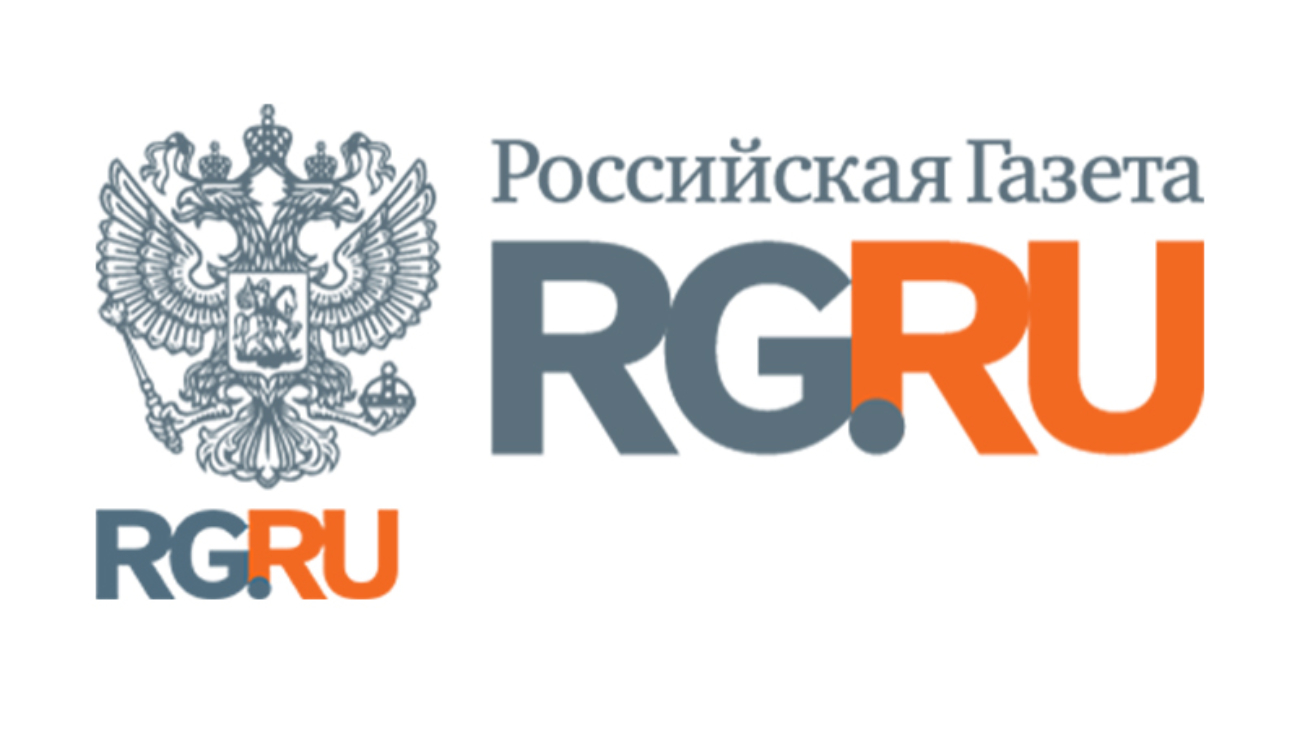German poet – romanticist Friedrich Shiller has a classic drama with the pathetic name of “Love and insidiousness”. As it often happens it became the basis for plenty of parodies. Let’s say Zoschenko has a series of humorous short plays, where Shiller’s original name is put vise versa. But now and then life creates stories which eclipse any fame of imagination. And my attorney’s experience has one occasion which can serve basis for a play not worse than the Shiller’s one.
Before I start telling the story I would like to express my sympathy to all the main characters of the story. Their names however have been changed to secure ethic norms.
These people by no means can be considered silly and I rather add extravagant. In my opinion only they could find themselves in the events described below.
Well, in 2008 Alexander Pimenov asked me to help him. The client told me that accidentally he learnt about his wife divorcing him without his consent. Alexander was amazed to possible limits. Indeed, can a wife divorce a husband without making him know about it?
To better understand further juridical collisions it is of vital importance to recognize relations character between Alexander and Kristina. He is a clever and energetic young man, building a successful business, used to achieving his aims. And obviously Kristina became one of those aims. Despite the fact that Kristina never felt anything towards the admirer, the latter long and persistently paid his attention to her. At last, in 2002 they registered their marriage. Hardly had that the step been determined by romanticism of the bride. From my point of view this marriage looked like a commercial deal, since Pimenov registered a half of a big land area to his young wife’s name, which he had bought before the marriage. Then he built a big luxurious country house, a half of which went to Kristina. So, in this way right after the marriage she became a rich woman. Alexander helped to Kristina’s parents too. He assisted them in buying a country house in the neighboring compound so as the parents could see their daughter more often. Kristina herself didn’t want to have children for a long time, but in the end Alexander managed to insist on his desire achieving another “aim”. Their son Peter was born.
Going a little further, alongside with telling this story, I would give some thoughts on morale of the current passions as they may be. Personal relations between people are very often more complex than business. This delicate matter is not submitted to methods of corporate management. True family happiness, where mutual love and respect rule, can’t be created via manipulation or pressure, as our main character tried to perform. And to make happiness possible, both spouses’ desires should coincide. Our story is a wonderful illustration of that simple thesis: one wishes very much, another tries to “wish”, but can not manage, and anyway he/she for reasons unknown (in our story material benefit seems the main feature for me) gets married. This model supposes two ways: either a terrible end — separation, or endless terror – living under one roof… Kristina, being a resolute and shrewd lady, already possessing big material assets, decided to divorce at the most convenient moment from her timing point of view.
But back to what Alexander told me. Before divorcing Kristina had not lived in their country house for some time. My client understood that she found another man, but he hoped that Kristina would come back. Hope, as we now know, was futile. But Kristina’s leave is only the beginning of the story.
— I am sure when we lived together she pumped money from me, — continued Alexander. – For example when we are building a house, she says: the designers asked 150 thousand dollars for their services. I give her this money, because she is my wife and I want to trust her and don’t check her. It is after the divorce when I started to analyze everything, compare facts. Let’s say out of those 150 thousand dollars Kristina paid to the designers only 30 thousand, the rest she kept for herself. And it is not the only case, as we may easily guess.
My first assignment in this case was to determine if the marriage had really been turned down. My assistants called Moscow courts where the divorcing procedure belongs territorially to, and where it could be at that moment. And indeed, in one of the courts we found the corresponding decision. The court, on Kristina’s appeal made a judgment by default. This is possible if one of the parties concerned doesn’t come to court, but also doesn’t mind about judgment by default. Kristina hired an attorney, a former judge, who could contrive and find ways to get such a decision. My client’s wife considered herself divorced for several months and didn’t tell anything to Alexander.
When Alexander and I received this information we concluded the following. Kristina intended to acquire on her name some property, exactly a luxurious apartments in the center of Moscow, for the money “saved” during joint household. Whereas she understood that the property would not be submitted to division with her former husband if it was bought after the divorce. We analyzed the situation and my client formulated his initial aim: “I want the question about turning down our marriage should be settled taking into account my opinion, not behind my back. As for this judgment by default, I want it cancelled”, — said Alexander.
This was not a very difficult task. A judgment by default is cancelled if a party, which was absent during its announcement, files disagreement within 10 days since the moment when this situation became known to her. So, despite the fact that the divorce took place in June 2008, and we came to know about it in August, we lodged a complaint within the time framework, set by the law. I stated some reasons in the appeal for cancelling the default judgment: firstly, Alexander was not properly notified about his wife appealing to court, and thus was not able to present in court or send a representative, secondly, the court didn’t settle a number of issues connected to property division and the living place of the son who is not come-of-age.
The judge, turning down the marriage, had to cancel his decision and set a new hearing. At this point Alexander clears our task: we are not simply turning down the divorce, we are dragging out and protracting the process as long, as possible. Because according to his “intelligence tips” Kristina has already entered a big deal on buying an apartment, of course, on his money. Pimenov wanted this deal to be finished with Kristina still being his wife. We managed this too. The process protraction in the interests of our client was a success.
A peculiar record was set: a simple divorce appeal, without any difficult argument about children and property division, took us nine months. Of course this time encompassed several appeals and reconsiderations. But how was it all done?
When I began to study materials on the marriage dismissal, performed during the first judgment by default, I found an interesting detail. The marriage certificate added to the appeal, stated that to the wife, i.e. Kristina Panova, in 2002 the surname of Pimenova was given. It means that Kristina took the surname of her husband in the order, determined by the Federal law on “Citizen Status”. But the appeal on the marriage dismissal itself was signed by woman citizen Panova. Kristina, thus continued to use her maiden surname. But according to the provision of the law about “Passport of a citizen of the Russian Federation”, after marriage citizen Panova was committed to change her passport for a new one within 30 days. According to the same law, the passport is the main personality identification document, proving his personality on the territory of the Russian Federation. The passport that is not changed in due order and in due time shall be considered invalid.
Under this assumption I made a home preparation. One first day of the reconsidering hearing on the marriage dismissal of Alexander and Kristina I submitted a petition on leaving her appeal without consideration. My petition was based on the fact that the appeal was signed by an unidentified person, because Kristina performed with an invalid passport while filing an appeal.
To be quite frank it was bluffing. The judge however was conquered: being deeply astonished he read the law about passports several times and… satisfied my petition. Panova’s appeal was left without consideration. There was no limit to indignation of Panova’s legal advisor, who considered himself to be capable of “settling issues” – it had no effect. Former judges very often lose the sense of reality, keeping with in the court room with them their previous manners.
Precious time was won. The process then became all a mess and confusion. A new appeal of Panova’s legal advisor cancelled the judge’s decision on leaving the appeal without consideration. Then the judge considered it possible to dismiss the marriage setting a date of the past, and putting an incorrect date. We again petitioned this decision and the divorce is again cancelled. In the end, only in January 2009, in the court of second instance the final decision is performed – the marriage is dismissed. My client’s task to drag the process was done successfully. And, by the way, exactly during this period Kristina finishes her deal on acquiring an apartment, becoming an owner.
It is worth saying that there is a provision in the law which says that during property division of the spouses it is taken into consideration whether they have lived or not together at the moment of buying property. If actual relations ceased before acquiring disputable property, it can be found not submitted to division. Of course I knew about this provision, but our task was to drag and prolong the process to achieve at least some strongest suit cards for further appeals. By dragging the process we received new arguments just in case Kristina decided to refuse dividing property legally.
During the whole litigation period Alexander used to tell me in details about his life, about Kristina’s treasons. According to his words he forgave her because he hoped she would finish being “racy”, — in the end they had had a uniting baby. But gradually he became to look more closely at her adventures. It turned out that Kristina continued to date with her friend from the studentship times Klim Kornev. Kornev is a successful banker, who has been in love with that fatal woman; despite she got married. And the first Alexander’s version added up to that Kristina left him for that man.
To be just I should state that Alexander never limited himself in pleasures as well, allowing himself to be fond of other women. I remember his monologue in my study: — “I know for sure betrayals are possible in marriages, the main idea is to come back to the family. I don’t mind my wife having sexual relations with someone, if she comes back to the family afterwards”. To my mind Kristina and Alexander were two parts of a one, but Alexander’s “smart theory” on keeping the family never worked out.
With the marriage dismissal, this story stopped for a while. My defendant decided not to force forward the events on property division, possibly still hoping that his wife would come back.
In a while Kristina herself started to appeal on property division, thus, willing to make a full stop in relations with my client. We were ready for such a course of events and reacted by counter appeals demanding to divide property which Kristina acquired in her name by the mentioned above ways. We demanded to arrest her active capital, which was not little, add it to the general property mass to be divided. Though some of our appeals were disadvantageous, even the slightest chance of them being satisfied inflicted additional psychological pressure on our opponents, which was our aim.
One day a telephone in my reception called. The secretary got through to me and told: «A certain Klim Kornev wants to talk to you». It was not at once that I understood who it was. But then I remembered Alexander’s stories.
— Hello! My name is Kornev, — I heard in the receiver. – I would like to discuss one case you are in charge for.
— I have heard your name, — I answered. – I am listening to you.
— You represent interests of Alexander Pimenov. It so happened that we have a mutual debtor. I also suffered heavy property losses from one of our mutual acquaintance. I would like to join our efforts against her.
I jotted down her telephone number, notifying him that I should agree the possibility of our cooperation with Alexander. This news gave Pimenov a pleasant shock:
— Of course, we should meet and talk to him! – he said!
And so, I am talking to Klim. It came clear that during all the marriage years with Alexander Kristina told to Klim that she loved him, and while he was on business trip she accidentally got married, gave birth to a baby occasionally, but it was all nothing, and she would come to Klim soon and they would be happy. Klim waited for her for many years. He did very expensive presents for her, provided with very serious help in building up her own business.
Klim told that after the divorce with Alexander and waiting for a close marriage with Kristina, he presented her with a luxurious jeep BMW X6. He also told that Kristina asked him to make a present for her mother. And so the “groom” is carrying keys from a new “Mercedes” to his prospective mother-in-law. Klim regularly visited Kristina’s parental house: a wonderful situation with a married woman visiting her mother’s house with a lover, and it doesn’t embarrass anyone. The world has gone crazy.
Before the New Year of 2009 Klim and Kristina were planning a trip to Courshevel. They buy tickets, and one week before they visit shops, getting ready for the trip. Kristina buys a collection of clothes worth of half a million rubles. Very expensive, beautiful and… summer clothes. And a couple of days after, sobbing, she calls Klim up and says: “Sorry, I have fallen in love with another man”. And goes to warm countries with her new passion, taking with her all the beautiful things, bought by Klim.
Actually Kristina fleeced both Alexander and Klim, and both worth of more than one million dollars. Because Kornev, besides everything else helped her to become financially independent, arranged a big business for her in which he invested assets from his own company.
My astonishment had no limits when I found out that Kristina left Alexander not for Klim, but she left Alexander and Klim for a third man, named Gosha. Gosha was a doctor and financially compared to our businessmen a man of very modest income: in summer he used winter rubber on his car because he had no money to change it. Kristina marries such a man and gives birth to a baby for him… Alexander and Klim in my opinion will never recover from such a blow.
At some stage I offered to Alexander and Klim to meet and get acquainted.
So we agreed about this unique meeting which took place in my study. Two men meet at the breefing table, a former husband and a former lover, who turned to be united by one lady, and financial losses suffered on her account. On feeling that the atmosphere is rather strained, I took the initiative.
— Gentlemen, there is nothing personal in our meeting. Let’s remember that we have mutual economic interest in the framework of which you could make use of each other, — said I. It was absolute true, because Kornev knew better where Kristina invested Alexander’s money. Going a bit further in my narration I would say that the information exchange allowed us to issue new appeals on property division. And the circumstance that Klim and Alexander allied became a strong psychological blow to Kristina. She could not expect such a turn of events!
To cut it short the first half an hour only I was speaking. But steadily Alexander and Klim started to tell each other about wonderful events from their life and the life of their flame. And here emerges the scene worth of writing down in the annals:
I remember that summer Kristina went to her friend’s wedding – says Alexander.
— No, — makes clear Klim, — we went to a journey, and she never made it to her friend.
— Then she returned, — continues Alexander, — and asked me to give money for a jewelry decoration from Tiffany “Palm”.
— I presented Kristina with Tiffany “Palm”, objects Klim – and then she asked me to give money for Tiffany “Anchor”.
— Tiffany «Anchor» was my present… – slowly announces Alexander.
And at this very moment they simultaneously raise their hands and clasp giving five to each other. After that a typical dialogue of two war – veterans begins: “Do you remember we destroyed tanks on the Vistula? And what about that episode?” They spend in my study one hour, then goes one more. I didn’t know how to interrupt this happy reunion meeting. In the end I politely ask them to leave me.
They come to the nearest restaurant and stay there 3 hours more, continuing their unique dialogue of two outwitted men fallen in love. Since that moment with the agreement of Alexander Kornev became my client as well.
I should say a few words about Kristina. I was staring at Alexander and Klim – smart and successful people, and could not understand what kind of personality Kristina was to manipulate such strong men. I made a suggestion that it was impossible to catch those two guys simply playing a certain role, or just showing that she was in love. I came to the conclusion that Kristina lived several lives simultaneously.
Our legal process in the end finished with an amicable agreement. It happened mostly because the previously aggressive legal attorney of Kristina was substituted for a wonderful colleague of mine having enormous life and professional experience. Very quickly we found mutual grounds, afterwards both of us with great difficulty convinced our client to fly the white flag and start to get to an agreement. As a result the country house with the land went to Alexander. Instead he paid a money compensation to Kristina. One apartment went to Kristina. It was much more difficult with Klim. The woman was crying and saying: «I lied to you, I am sorry». And he insisted on her returning money being unable to forgive such a terrible betrayal.
Alexander married a beauty. As for Klim he turned disappointed in women, I hope temporarily, and now suspects everyone: can she be trying to get his millions which he earns more and more? Kristina is living a happy family life with Gosha, who seems to differ advantageously from our heroes despite being inferior in financial income.
We are not to judge actions of these young people, let God judge them. We wish them all the best!









